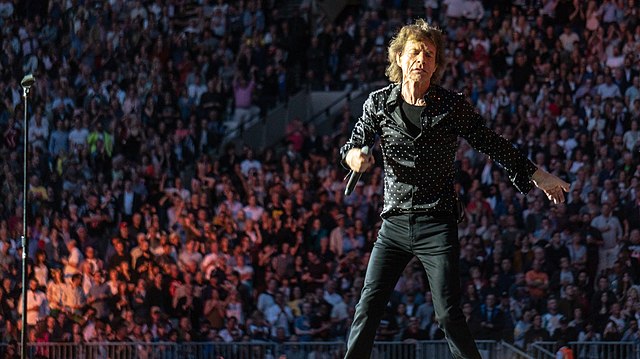On February 9, ABKCO Films will debut The Rolling Stones Chronicles series on its YouTube account, which is hosted by Vevo.
The Rolling Stones Chronicles is a collection of six documentary shorts co-produced by BBC Motion Gallery and ABKCO, each of which has a different Rolling Stones classic song from the 1960s as its soundtrack. The music is mixed with thematically appropriate band and current historical person interview snippets, with historical documentary video of related global events intermingled. Every Thursday between February 9 and March 16, starting with Episode 1 – The Last Time, each episode will be released one week apart.
Below, you can watch The Rolling Stones Chronicles, Episode 1: The Last Time:
Episode 1 of the series highlights the impact of early rock & roll and Chicago blues on the band and the irony of the British Invasion being the selling of American culture back to its place of birth, set to The Rolling Stones’ 1965 hit single “The Last Time” (US #9; UK #1).
One of the highlights of Episode 1 – The Last Time, which also includes audio of Marshall Chess telling the tale of meeting the Londoners and inviting them to record in Chicago, is Keith Richards describing the day he met future musical partner Mick Jagger on a train while holding classic-yet-still-obscure R&B and blues records. Other heroes of the Stones featured in the episode include Little Richard, B.B. King, and many others. Richards remembers excitedly thinking, “What you’ve got under your arm is worth robbing.”

Future installments of The Rolling Stones Chronicles will focus on the profound societal changes that occurred between 1965 and 1969, which The Rolling Stones themselves served as a symbol for. With a brief allusion to David Bowie’s (then Jones) Society for the Prevention of Cruelty to Long-haired Men, Episode 2 of the series, “(I Can’t Get No) Satisfaction” (release date: February 16), continues the theme of sexual liberty.
Related: TikTok has welcomed The Rolling Stones.
The premise of Episode 3 – She’s A Rainbow, which will be broadcast on February 23, is the proliferation of psychedelics and the infamous “Redlands bust,” in which Jagger, Richards, singer Marianne Faithfull, and other pals were detained for drug possession at Richards’ home in ’67.
The Rolling Stones Chronicles Episode 4 – Street Fighting Man (airing March 2), which features the song that was partially influenced by the 1968 student unrest in Paris and other cities, focuses on the intense social unrest in the latter half of the 1960s and is particularly focused on the fight for racial equality, gay rights, the movement against the Vietnam War, student demonstrations, and the Troubles in Northern Ireland. The audio/visual segments include quotes from Muhammad Ali and Martin Luther King Jr., with the latter saying, “My people first deserve freedom, justice, and equality.”
Episode 5’s subject, Jumpin’ Jack Flash, is the dual nature of technology and its hyper-acceleration during the dawn of the computer age (air date: March 9). With footage of nuclear tests, astronauts, and The Rolling Stones recording at Olympic Studios as shown in Jean-Luc Godard’s movie Sympathy for the Devil, the Cold War, the space race, and innovations in recording techniques are woven together).

On March 16, the sixth and last episode of The Rolling Stones Chronicles, Gimme Shelter, will be made available. The album Let It Bleed’s eerie opening track from 1969 serves as a backdrop for the theme of revolution and the unrest that marked the decade’s end. The Altamont disaster, the Hyde Park tribute performance, the funeral of original guitarist Brian Jones, and the hippie movement are all depicted. Most young people are dissatisfied with the generation they believe is in charge of their lives, Jagger once told an interviewer. The question “What do you not like?” is then posed to him, to which he replies, “The generation that rules our life.”
According to Robin Klein, the show’s executive producer, “The Rolling Stones Chronicles places the band’s music in the perspective of history.” “The Rolling Stones themselves acted as a medium for, reflected, and spurred change, even though they were so much of that era.
“This project provided a unique opportunity to unearth contemporary and authentic voices from the BBC’s rich archive to give deeper meaning to the Rolling Stones’ most influential records and show how the cultural and societal shifts of the 1960s still resonate today,” said Samira Choudhury, Producer for BBC Motion Gallery.
Download The Radiant App To Start Watching!
Web: Watch Now
LGTV™: Download
ROKU™: Download
XBox™: Download
Samsung TV™: Download
Amazon Fire TV™: Download
Android TV™: Download

